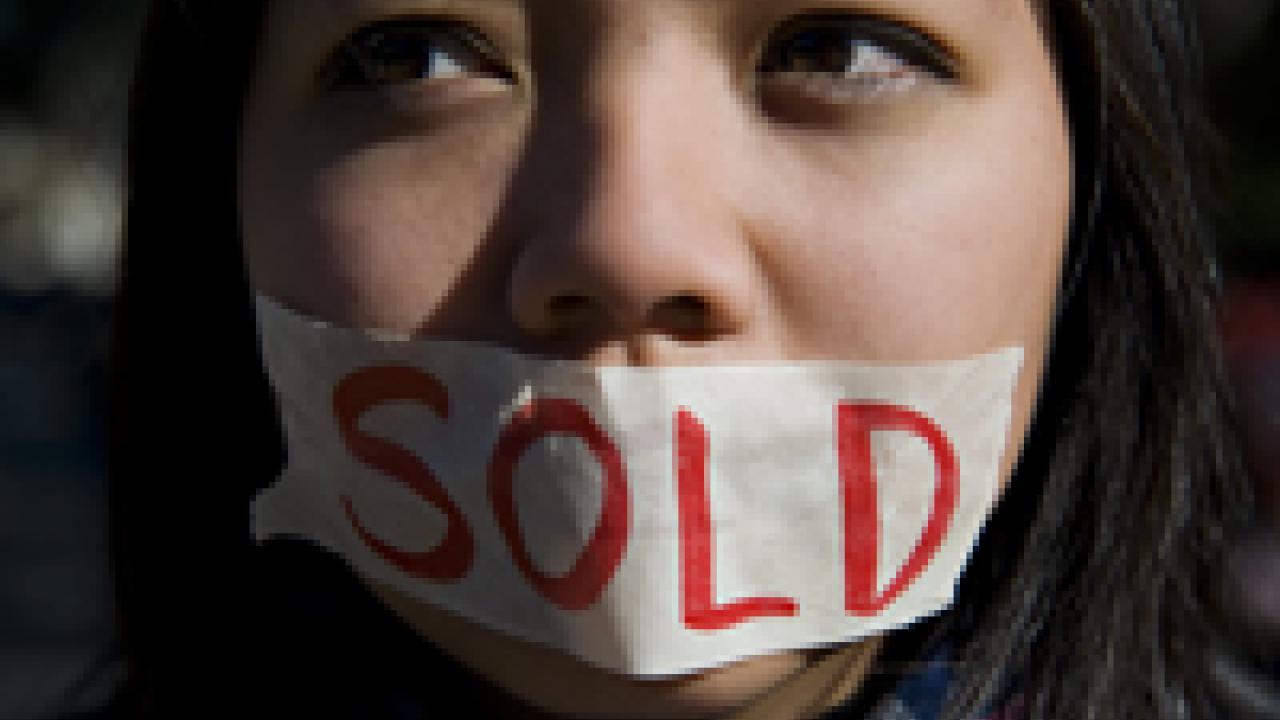In America, $2 can buy you two iTunes songs — in Thailand, you could buy a child for sex with that amount of money.
This is, unfortunately, big business. UNICEF reports that more than 1.2 million children are trafficked each year from all over the world. Eighty percent of the victims are females. According to the U.S. government, this illicit flesh trade generates about $9.5 billion per year.
To fight child prostitution, the SOLD Project (www.thesoldproject.org) has embarked on a nationwide tour. On Jan. 29, the project came to UC Davis where more than 400 students packed Chemistry 194 to learn about the problem and what they can do about it.
As the SOLD session illustrated, whether children or adults are involved, human trafficking is a complex problem. About one-half of trafficked victims are children who are bought, deceived, coerced and sold into the sex trade industry, according to the government’s Trafficking in Persons report.
What is to be done?
“Education is the answer,” said Rachel Goble, executive director and associate producer of the SOLD Project. “When families are poor, they have to choose whether to send their children to work or to school. It breaks our hearts knowing that selling their children to prostitution is a resort to make money.”
She added, “We have hope that education is the best way to prevent child prostitution from happening.”
In response to child trafficking in Thailand, considered to be the sex tourism capital of the world, SOLD works to prevent the buying and selling of children by providing educational scholarships to children at risk.
Cultural obstacles
UC Davis researchers and professors offer some insights as to why child trafficking happens — and how to thwart it.
“Thailand has good laws, but bad enforcement,” said Monticha Sompolvorachai, a lecturer in agricultural and resource economics and native of Thailand. “There are a lot of abandoned children on the streets, and Thailand does not have foster homes, like America.”
She noted, “You can pay off the police, so people can get away with kidnapping abandoned children and force them into prostitution as a way to make money.”
While Sompolvorachai believes in the educational approach, that is only half the solution in resolving this issue. “Creating jobs is also key, because if you can’t find a job, what’s the point of getting an education?”
After all, “the quality of a teacher has to improve a lot, too. In Thailand, there’s no license required to teach, and being a teacher is the last on everyone’s job list.”
Benjamin Lawrance, a professor of African history, studies the African slave trade, comparative and contemporary slavery.
He said that in order for child trafficking to be curtailed, “individual countries’ legislative remedies have to be deeply influenced by local actors, and their mandates have to be appropriately funded.”
There is also the problem of adults who seek child sex. A Denver Post article describes how an American paid 20 baht, or about 60 cents, for oral sex with a 10-year-old boy.
Alan Klima is an associate professor of anthropology whose research focuses on pro-democracy activism in Thailand and the formation of global moralities.
“Something has to be done about the demand side” that makes the child sex trade possible, he said. "There is a desire for child prostitution, and that needs to be confronted."
As complex as human trafficking is, SOLD Project organizers say this student generation is hungry to stop it.
“There is no limit as to what we can achieve when we all stand together to confront child prostitution,” said Goble.
Christina Louie, event coordinator in bringing the SOLD Project to UC Davis, said, “I’m excited to see what action stems from this event and am hoping that what they heard will move them to action.”
What can you do?
Get involved — Join the SOLD Project (www.thesoldproject.org), sponsor a child at-risk, receive e-mails, host a dinner.
Join UC Davis social justice groups — International Justice Mission, Amnesty International, I Heart Justice.
Connect faith and social justice — send an e-mail to lefthandontop@gmail.com to join a discussion group.
Consume wisely — Hold businesses accountable and find out at chainstorereaction.com what companies ensure their products are slave-free.
Report exploitation — If you suspect exploitation, call the national trafficking hot line at 888-373-7888, or visit www.acf.hhs.gov/trafficking.
Get educated — Read books, watch movies on the subject, and ask travel agencies, hotels and tour operators to support the protection of children (www.thecode.org).
Nicki Sun is an intern in University Communications.
Media Resources
Clifton B. Parker, Dateline, (530) 752-1932, cparker@ucdavis.edu
